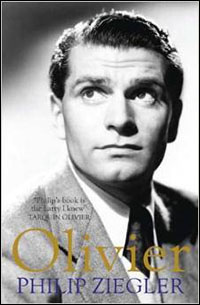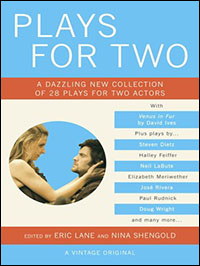
*
Back in 1988, Elia Kazan — who probably qualifies as the premier American stage & screen director of the 20th century — published his revealing and illuminating autobiography, "A Life." By this point, Kazan had fazed out of stage and screen activity, his final major credits being Broadway's Sweet Bird of Youth (in 1959) and the 1976 Robert De Niro film "The Last Tycoon." His attention had turned to writing, with four best-selling novels starting in 1961. By the time he came to prepare his life, he was an accomplished writer — which is to say, his autobiography was carefully and meticulously written by someone who knew what he wanted to say and how he wanted to say it.
"The Selected Letters of Elia Kazan," edited by Albert J. Devlin with Marlene J. Devlin [Knopf], start in 1925 and continue until 1988, although all but 50 of the 600-odd pages of letters come before 1970. (Kazan died in 2003, at the age of 94.) Thus, the "Selected Letters" does not give us Kazan's final word on his many triumphs and fewer missteps, and that turns out to be the new book's great strength. Kazan surely self-filtered himself when he was writing the letters, depending upon what he was writing about and whom he was writing to; but a wise and cagey forty-year-old writing about what happened yesterday is quite different from a wise and cagey eighty-year old writing for posterity.
Kazan was intimately involved with — and in some ways contributed to the success of — some of the major theatrical achievements of the 1940s-through 1960s, including Thornton Wilder's The Skin of Our Teeth; Arthur Miller's All My Sons, Death of a Salesman, and After the Fall; Tennessee Williams' A Streetcar Named Desire and Cat on a Hot Tin Roof; Robert Anderson's Tea and Sympathy; and Archibald MacLeish's J.B. Films include "A Tree Grows in Brooklyn," "Gentleman's Agreement," "Streetcar," "On the Waterfront," "East of Eden" and "A Face in the Crowd." That is an impressive list, and only a partial one. Kazan has plenty to say and much of it is intriguing, which makes his "Selected Letters" readable and pertinent.
*
| |
 |
|
| Cover art |
*
| |
 |
|
| Cover art |
People looking for contemporary two-person plays can find a couple of dozen in "Plays for Two: A Dazzling New Collection of 28 Plays for Two Actors" edited by Eric Lane and Nina Shengold [Vintage]. This book is pretty much what the title implies. Four of the plays are full-length, including the one acclaimed title in the volume, David Ives' Venus in Fur. I am unfamiliar with the other full plays, Shooting Star by Steven Dietz, Black Pearl Sings! by Frank Higgins, and The Art of Sacrifice by Anthony Clarvoe. The many one-acts include work by Paul Rudnick, Doug Wright, Halley Feiffer, Neil LaBute and David Auburn.
*
| |
 |
|
| Cover art |
*
(Steven Suskin is author of the updated and expanded Fourth Edition of "Show Tunes" as well as "The Sound of Broadway Music: A Book of Orchestrators and Orchestrations," "Second Act Trouble," "A Must See," the "Broadway Yearbook" series, and the "Opening Night on Broadway" books. He also writes the Aisle View blog at The Huffington Post. He can be reached at Ssuskin@aol.com.)




-Matthew-Murphy.jpg)





